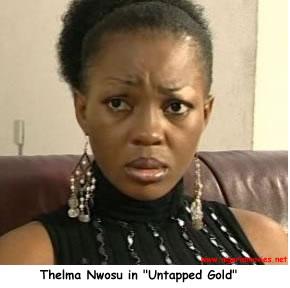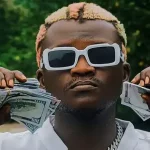
Nigeria’s success with its Nollywood film industry is leading to a great deal of soul-searching (see Regulatory News below). The country’s censorship board NFVB has attempted to licence film distributors and is making pronouncements about how Nollywood films should reflect “a more positive Nigerian Image internationally”. Kiszo DuFay learnt his film-making skills at the Hollywood Film Institute but he returned to Nigeria two years ago to make films in his home country and to launch the African Roving Film School as a way of raising skills locally. Russell Southwood spoke to him last week.
Q: What’s your company Taradome Entertainment Group do?
It used to be a distribution company but now we do film productions. We want to tell African stories that are done well and we have various projects in development at different stages.
Q: What are the projects?
We’ve got three projects that we’re hoping to realise starting next year. We’ve finished scripting two of them. One is Lagos Jumping, a buddy-style movie done in an African way. It deals with drug dealing via South Africa and narrated in the American style.
The second project is The Drive which is about three African doctors from different parts of the continent who are friends. They attend a medical conference and miss their flight but they have to get back to attend the wedding of one of them. They have to drive to the next country to get another flight and it’s about the obstacles they encounter. It looks at the different prejudices there are about being different Africans.
The third one is an experimental project using Shakespeare’s Othello to make a psychological thriller and we’ve not finished scripting it yet. It’s a different twist on the relationship between Iago and Othello. We’re trying to do all of them on internationally costed budgets and we’re looking internationally as well as locally for the best possible persons to act and make them.
Q: How did the African Roving Film School come about?
It was born out of necessity. When I came back to do production, the skills needed were grossly wanting. I was trained in LA and I thought how can I have an impact on the industry? If you train someone, they’ll never lose that.
Although we have had difficulties with pricing (the courses) and lack of sponsorship, we are making progress. People are not earning enough money to pay for the training so the courses have run at a loss. We’ve been trying to get international help and are talking to equipment manufacturers about loaning us equipment at a low cost or no charge. But there’s definitely excitement about and a need for training.
The courses we run are listed on our web site and we get professionals from places like UCLA and we have a sound person who comes from France. My script instructor is an Irish-born, UK citizen. They are all interesting personalities and it’s our ambition to train the 1000 best people in every area of training. And then I can hand pick people for my productions…
People coming on the course are everything from beginners just wanting to learn from scratch. These include those leaving university, looking to do something in the film industry to professionals who want to come on an advanced course to enhance their skills.
Q: How do they find the money for the workshops?
Nollywood spends the equivalent of US$50,000 on a production so writers for example don’t get paid more than US$500 for their contribution. Training is the last thing on their mind. We get some of the training underwritten but it still costs money. And I don’t think it should be free. One thing we’ve focused on is writing skills. How do you develop your script? How do you develop a narrative? You have to be able to tell stories that people are interested in buying internationally. You have to know how to move to a proper template and to create a Grade A production. Then there are questions like: how do you produce something? How do you stop piracy? You need to get the product into the right hands.
Q: Where do you think the Nigerian film industry will be in five years time?
It will have produced an Oscar-winning product with great quality and talent. We have have the creative talent: the writers, the actors and the musicians. We haven’t had the proper platform to showcase their talent. These are the kind of people we’d like to go after.
Q: What’s your own personal background?
Before coming back two years ago, I’d spent 24 years of my like in the USA. I trained as an electrical engineer and got bored with that. So I did a scriptwriting workshop and acting. Before I came to the USA I was a child actor but was dissuaded from going in that direction because the industry was not really developed at that stage. Anyway, I worked on putting a fibre optic cable from Burbank to Atlanta and got my diploma from the Hollywood Film Institute.
came back two years ago because I wanted to do a project on the ground. It’s a huge challenge but the opportunity is here. I want to create a structure that will allow international investors to put money into Nigerian films. They shouldn’t write Nigeria off. If they come here, they wouldn’t be disappointed.


















